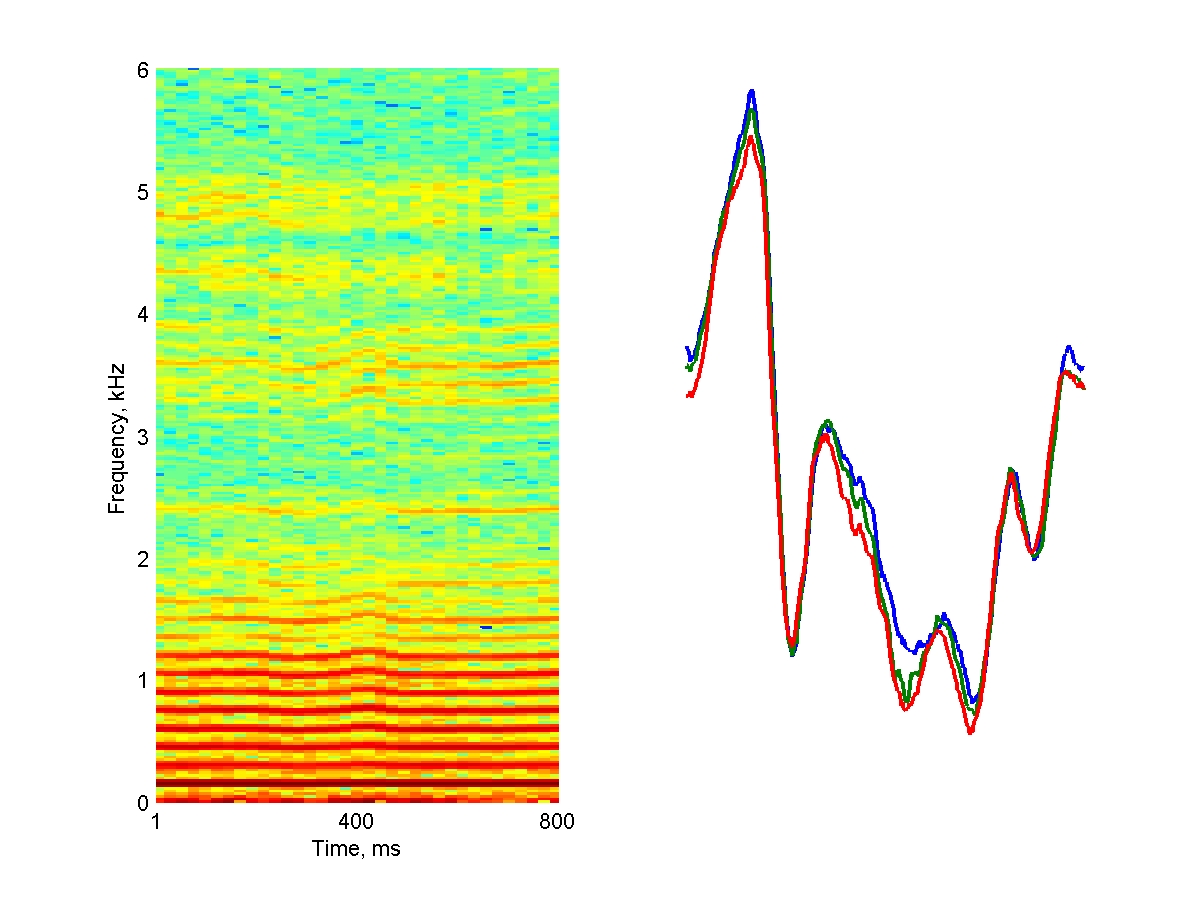One of the most important classes of sounds that have pitch in the natural environment are voiced speech sounds. However, like many other naturally-produced sounds, these sounds are not strictly periodic. In spite of this, they produce a strong sense of pitch. Sounds that are not strictly periodic but that do evoke pitch are in fact the rule, rather than the exception.
Here is a naturally-produced human vowel:
Elliot and Theunissen addressed this question by calculating the "modulation spectra" of speech as shown here:
The spectrogram of the vowel is presented on the left below, while on the right three consecutive periods are shown superimposed. Each of the periods has a length of about 6.75 ms - the pitch here is about 150 Hz. The periods have been extracted from around time 50 ms in the spectrogram. Note the small, but continuously present, changes in the sound, which can be observed both by following it period by period (right) and at the longer time scale, of 100s of ms, which can be followed in the spectrogram.

These micromodulations are crucial for the natural quality of the sound. When the micromodulations are removed, making the sound strictly periodic, it becomes buzzy and artificial, losing much of its speech quality:
Additional information about modulations in speech can be found in 'speech as a "modulated signal"'.
